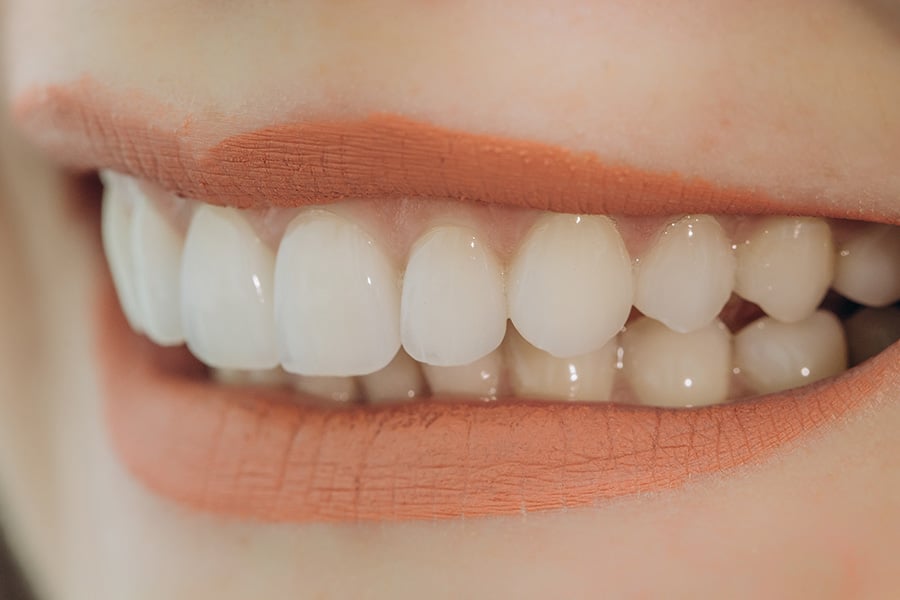Dental veneers are often used to fix chipped or damaged teeth, or just to give you the perfect smile. But there’s a lot to know before you can get started. Read on to learn everything you need to know about the different types of veneers.
What Are Dental Veneers Exactly?
Dental veneers are a popular method of cosmetic dentistry. There are installed on top of your existing teeth to give more support and a fuller, brighter smile. Veneers can be used to fix cracked, chipped, discolored or otherwise damaged teeth.
In some cases, they are also added solely for their visual benefits. They are custom fit to your teeth, using whatever shape and coloration give your teeth the best visual appearance.
4 Types of Veneers
The type of veneer right for you depends on your budget and what function your veneers will serve. They can be made from many different materials, most notably porcelain or composite resin for permanent veneers.
For clip-on veneers or veneers that are not intended to last as long, there are other options for materials. In general, there are four main types of veneers.
1. Porcelain Veneers
Porcelain veneers are the most robust and longest lasting, however their high quality can come at a price. The ceramic material is the most durable option, lasting longer and requiring less frequent maintenance then other options. Porcelain veneers cost between $500 – $2,500 per tooth and last anywhere from 10 to 20 years.
Porcelain is also the highest quality material a veneer can be constructed from. They resist staining and are less likely to chip. Porcelain is also the texture most similar to your natural teeth. This will give your veneers a more healthier-looking exterior and a more natural feel.
2. Composite Veneers
Composite resin is one of the more common materials used to make veneers. They function similarly to porcelain veneers, but last a slightly shorter amount of time.
Composite veneers are less expensive than porcelain, averaging around $800 and $1,000 per tooth for lab-grade resin. Snap-on veneers only last 5 to 10 years, but are easier to repair than other materials.
Resin veneers are also less durable and more prone to discoloration and staining than resin.
3. Lumineers
Lumineers are another type of veneer, specifically designed to help reshape a tooth. They are thinner then both porcelain and composite veneers, which makes them more susceptible to chipping and damages. Lumineers are also more likely to detach than other types of veneers.
They are easier to implant and, unlike porcelain and composite options, can be reversible. Although prone to damage and detachment, Lumineers can last up to 20 years. They usually cost anywhere form $800 to $2,000 per tooth.
4. Removable Veneers (Temporary Veneers)
Removable veneers, or temporary veneers, can be used while your waiting for your permanent veneers or as a long–term solution. They are removable and can easily be popped in and out.
Temporary veneers are a budget-friendly option, priced at only about $55 per tooth. However, with these benefits there are also drawbacks. They are less durable, easily chipped, and prone to staining. But if you’re looking to removable veneers as a permanent option, higher-quality temporary veneers can be found.
When Are Dental Veneers Recommended?
There are some cases in which dental veneers are recommended. Veneers sit on top of teeth, protecting chipped or damaged areas from further problems.
If you talk to your dentist about visual improvements to your smile, they might recommend dental veneers as a good option. Veneers can help you get the smile you’ve been waiting for. Consult your dentist to see if veneers may be right for you.
How Much Do Veneers Cost?
The cost of veneers varies depending upon several factors. The most significant factor impacting the cost of veneers is how many teeth you’re looking to enhance.
Veneers are priced per tooth so expect to pay per tooth. The more teeth you wish to improve, the higher your total cost will be. The material you choose will also impact pricing per tooth.
Depending on your oral health, you might need additional dental work before you become a good candidate for veneers. If this is the case for you, you’ll need to factor in the cost of the extra dental procedures and appointments.
Choosing the Right Veneers for Your Smile
The perfect veneer for each smile is different. To know what type of veneer you’ll need, talk to a dental professional. If you need answers about veneers, East Valley Dental Professionals can help. Give us a call at 480-838-3033 to learn more.

